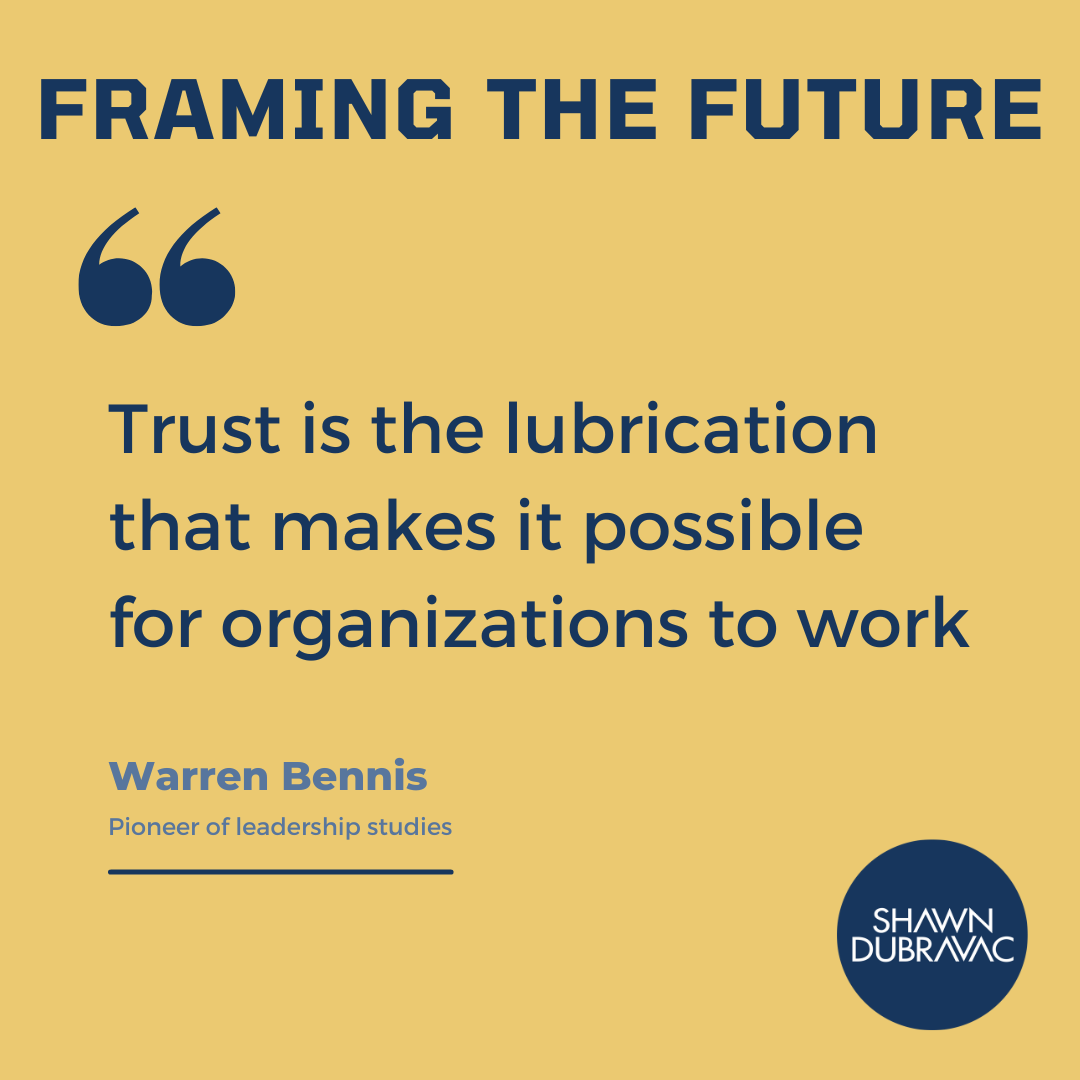Team trust is the lifeblood of any well-functioning team, but a lack of it may be holding back organizations in today’s hybrid work environments. Building it is now more critical than ever for leaders and managers who want to see their teams thrive, no matter where they are located.
Recent headlines have been filled with news of additional layoffs at Meta, Facebook’s parent company. In a memo to employees, CEO Mark Zuckerberg shared his insights on the future of work and the importance of relationships, highlighting how teams need trust to thrive.
Here’s what Zuckerberg wrote:
Our early analysis of performance data suggests that engineers who either joined Meta in-person and then transferred to remote or remained in-person performed better on average than people who joined remotely. This analysis also shows that engineers earlier in their career perform better on average when they work in-person with teammates at least three days a week. This requires further study, but our hypothesis is that it is still easier to build trust in person and that those relationships help us work more effectively.
While hybrid work gives employees the flexibility they want, it may not be delivering the crucial trust that teams need to succeed. This is a critical challenge for anyone looking to build stronger team trust.
The Neuroscience of Trust
In Dr. Paul Zak’s influential research on the neuroscience of trust, he identified eight behaviors leaders can use to cultivate and maintain a culture of trust. Zak’s research emphasizes the importance of intentionally building social ties at work. These connections strengthen trust, which, in turn, boosts employees’ self-reported energy levels, life satisfaction, and engagement. Understanding how to build team trust is the first step toward a more engaged workforce.
According to Zak’s findings, leaders can build trust by showing genuine caring for their employees, demonstrating openness by sharing information transparently, and investing in their team members’ professional growth. These behaviors trigger the release of oxytocin in the brain, the chemical that promotes social connection and cooperation.
Actionable Steps for Building Team Trust
Zuckerberg’s memo and Zak’s research provide a valuable reminder that building team trust is not an accident—it’s an intentional act. It requires leaders to be proactive in creating environments where relationships can flourish, whether that’s in-person, remote, or a combination of both.
Key takeaway: To build team trust, you must create opportunities for connection and shared experience. This could include:
-
In-person meetups for hybrid teams to foster informal connections.
-
Dedicated team-building activities, both virtual and in-person, focused on shared goals.
-
Encouraging open communication and vulnerability by leading with an example of transparency.
Building team trust is an ongoing process that requires consistent effort. By prioritizing these actions, organizations can overcome the challenges of hybrid work and create a foundation of trust that leads to better performance, engagement, and overall well-being.
Related content you might also like:
- On Innovation: The Importance of Hybrids
- AI in Education Isn’t About Tech — It’s About Trust
- Continue Betting on Facebook
- Lessons from Little League: Building a Team
- Keynote: New World Foundations



